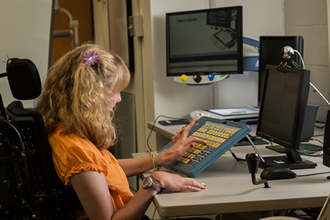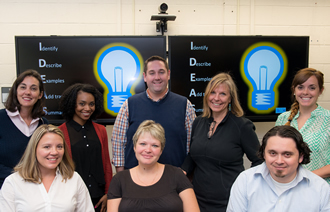STEM UP
Title: Self-Regulation of Science Learning in the Context of Educational Game Creation: A Study of Middle School Students with Learning Disabilities (National Science Foundation REAL #1420448)
This broadening participation research project will contribute to foundational knowledge about how middle school students with learning disabilities can better learn science as they learn to create educational computer games. This research will contribute to the need to determine how to better educate these students studying science in our country. There are approximately 2.5 million school-age children with learning disabilities in our nation's schools. There is a pressing need to ensure that these students graduate high school as science literate individuals who can contribute to society, pursue college education, and advance in STEM (Science, Technology, Engineering and Mathematics) careers. Gaining a better understanding of how students with learning disabilities learn science while creating educational games has the potential to lead to further basic and applied research which may ultimately improve how these students learn science and how teachers can improve their instructional practices to help students better learn science content and skills.
Project leaders at George Mason University will investigate the effort attributions, self-efficacy and self-regulation processes of middle school students with learning disabilities in the areas of science learning and educational game creation. Students with learning disabilities typically attribute their failures and successes in learning to factors that are external to them, rather than to their own efforts. Using social cognitive theory as the grounding for their work, the researchers will conduct an exploratory study to examine two primary research questions: 1) How do student effort attributions for learning relate to their perceptions of self-efficacy for serious educational game creation and mastery of science content? 2) Does intervention result in increased effort attributions that correspond with increased self-efficacy for both serious educational game creation and science learning? During the first phase of this project students will participate in science learning and educational game creation activities. During the second phase the first research question will be explored with a group of students to gain preliminary data. During the final phase the second research question will be studied to gather information about the potential for future research about interventions affecting science learning. At the completion of the exploratory study, it is anticipated that results will inform future basic and applied educational research about students learning to self-regulate their science learning in the context of educational game generation. The results of this work are expected to be shared with education researchers and the public in professional publications.





